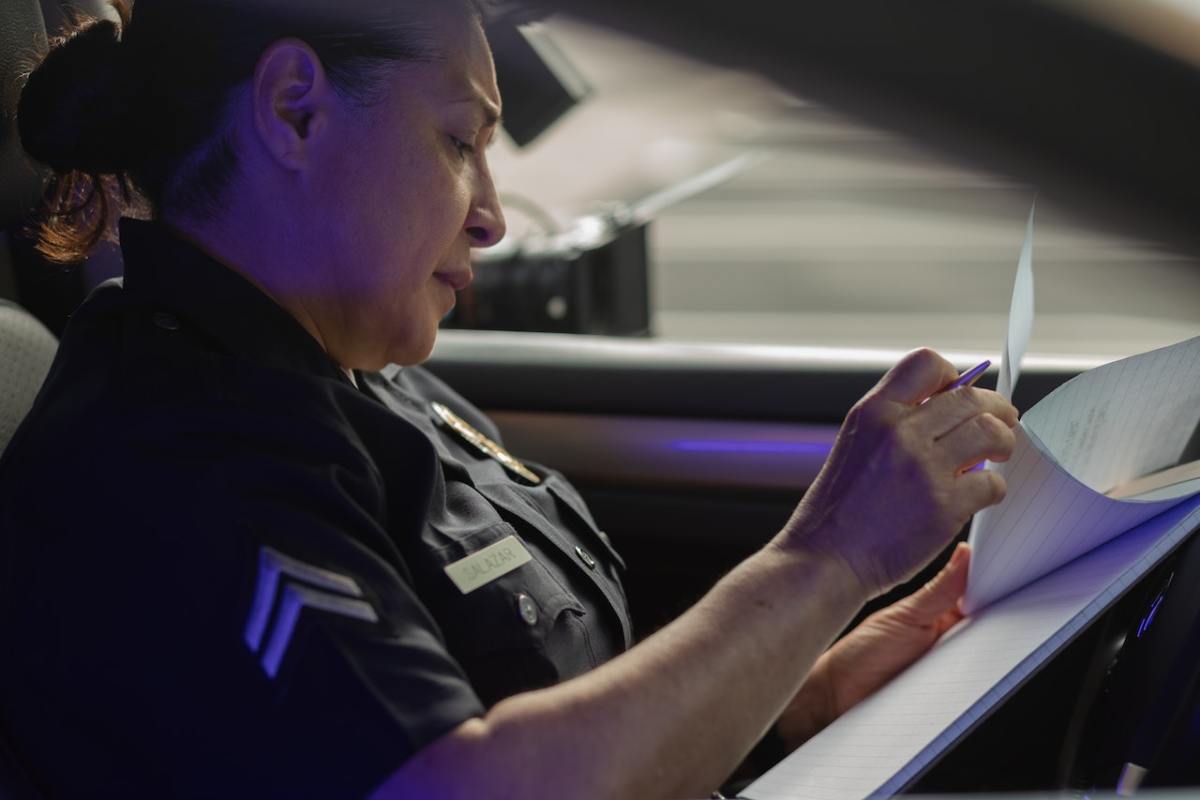Battling Criminals and Stress - A look at Police Stress and Suicide
Battling Criminals and Stress
Being a police officer in America is no easy task. In my online article I pointed out that America is 6th in the world for assault, 4th for drug crimes, 8th for murders with a firearm, 9th for forcible rape, and 8th in total crimes for the whole world, all figures are based on a ratio of based on population (Delfino III, 2011). Just becoming a police officer in Idaho is difficult, you must first complete the ten week P.O.S.T. (Peace Officer Standards and Training), most police departments require you have two years of previous security experience (The Training Program, 2010).
Once in the job it is only so long before a police offer is exposed to a traumatic incident or other kind of severe stress. Retired Sargent Ralph Dettwiler of the Beaufort County Sheriff’s Department told of one such incident. He stated that he had to remove a dead man’s body from a vehicle so the woman who survived could be helped by the EMTs. He had a Deputy with him and the two pulled the man from the car. After seeing the Deputy extremely pale he asked him what was wrong and the Deputy responded that it was his first fatal accident. Sargent Dettwiler responded with “I told him that was okay, he was doing fine and asked him to go direct traffic. I had forgotten what it was like to see and deal with your first messy fatal accident. Everyone has to deal with the first couple in their own way. It made me stop and think about how routine death had become to me.” (Dettwiler).
They are the first on the scene when a child dies, a woman is raped, a teen’s suicide, or a car wreck where the victim is breathing their last breaths. Besides seeing the trauma in day to day life, they live with the fact that their lives are always in danger and that at any moment they must be ready to fight possibly to the death. Add to the fact of the long shifts that they work, often 10 to 12 hours, and often rotating shifts between days and nights. Many officers suffer from Post-Traumatic Stress Disorder (PTSD) which is obvious in their level of fatigue and can link to other physical and mental symptoms (Post Traumatic Stress Disorder).
The Badge of Life Organization released their report of police suicides in 2009, and showed that 143 suicides were reported, up from 141 the previous year. The number might not seem very large but in comparison to the rest of society it is almost double the general population (Kulbarsh, 2010). Hans Selye, a well-known researcher has stated that police work is the “most stressful occupation” men currently do. Kulbarsh went on to point out, that police officers witness life’s most horrible scenes.
I spoke with Supervisor Don Peck, who had just taken over the Supervisor position that was held by Officer Tim Randall of the Nampa Police Department about the types of care the officers receive after a traumatic experience.
I spoke with him on the kind of services that a police officer would receive after exposure to severe crime. He emphasized that counseling or special groups were not mandatory unless the supervisor felt the trauma was affecting the work of the effected officer.
The Nampa Police Department has many great tools available to police officers both in house and though outside counseling services.
He went on to tell me that if a crime scene is especially traumatic, torture, multiple fatalities, child(ren) or other things that warrant proactive assistance, they would form a recovery team, and that all officers involved in the case, from dispatch to responding officers to detectives would be invited to these meetings, for counseling and group support.
Again he emphasized that these meetings were not mandatory and that most officers either deal with the stress and anxiety by themselves or with Counselors or Religious Leaders. He explained that the Nampa Police Department has an outstanding benefits package that includes counseling services.
Nampa Police Department is not the only police department that works to reduce stress of its officers. Essortment.com lists five ways that police officers can cope with stress.
· Stay fit, eat a proper diet, exercise regularly, and get enough sleep work on core relationships and sustain a healthy home environment.
· Open communication, without judgement, to discuss stress related issues both on the force and at home.
· Focus on positive thinking, and try to alter your state of mind when drawn to the negative.
· Attend social events that the department may host, and bring family if possible.
· Have counseling services that provide confidentiality and support for the officer.
These key points work well in any stressful situation (Five Ways Police Cope With Stress, 2011).
The truth of the matter is that police officers encounter many things during their time as the servants and protectors of our society. They encounter life and death on a daily basis and they need the support and encouragement that can only be found from the community standing up and supporting them together. Remember a kind wave or word can do wonders for someone who is struggling to do the most stressful job in America.
Works Cited
The Training Program. (2010). Retrieved 5 1, 2012, from Idaho State Police: http://www.isp.idaho.gov/hr/trooper_info/training.html
Five Ways Police Cope With Stress. (2011). Retrieved 5 2, 2012, from Essortment: http://www.essortment.com/five-ways-police-cope-stress-15940.html
Delfino III, J. (2011). Gun Control - Swizz Army Mentality - The Key to America's Future. Retrieved 5 1, 2012, from Hubpages: http://jcdelfinoiii.hubpages.com/hub/Swizz-Army-Mentality-The-Key-to-Americas-Future
Dettwiler, R. L. (n.d.). Fatal Accident on Lemon Island. Retrieved 5 2, 2012, from Behind the Badge: http://www.behindthebadge.net/truelife/tl13.html
Kulbarsh, P. (2010, 9 8). 2009 Police Suicide Statistics. Retrieved 5 1, 2012, from Officer.com: http://www.officer.com/article/10232405/2009-police-suicide-statistics
Peck, D. (2012, 5 1). Sargent. (J. Delfino, Interviewer)
Post Traumatic Stress Disorder. (n.d.). Retrieved 5 2, 2012, from Tears of a Cop: http://www.tearsofacop.com/police/ptsd.html








